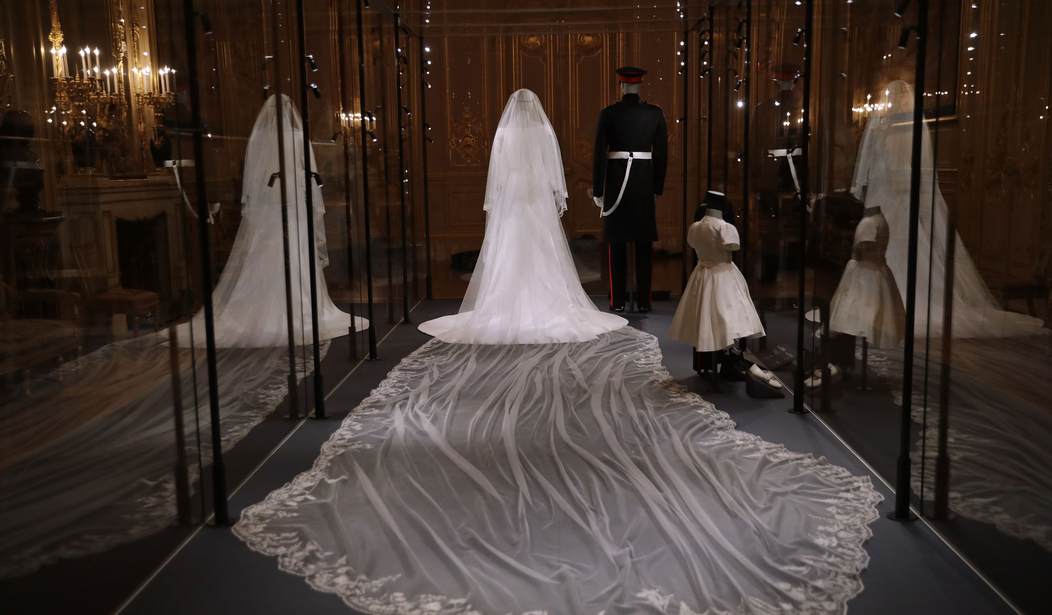In the least shocking news of the day, a new study has demonstrated that being married is protective against cancer.
Admittedly, I didn't know this specific fact about cancer, but both experience and lots of data has shown (contra yesterday's New York Post) that social connections, and specifically marriage, are good for your health and well-being.
Truly *astonishing* research on marriage & cancer:
— Brad Wilcox (@BradWilcoxIFS) May 28, 2024
For “prostate, breast, colorectal, esophageal, and head/neck cancers, the survival benefit associated with marriage was larger than the published survival benefit of chemotherapy.”https://t.co/4DHxEHfxwq pic.twitter.com/v6E3kcfRuR
But a new study out of Harvard and other prestigious institutions demonstrates that there is a significant protective effect against both getting cancer and survival rates if you do contract it.
Married patients were less likely to present with metastatic disease (adjusted odds ratio [OR], 0.83; 95% CI, 0.82 to 0.84; P < .001), more likely to receive definitive therapy (adjusted OR, 1.53; 95% CI, 1.51 to 1.56; P < .001), and less likely to die as a result of their cancer after adjusting for demographics, stage, and treatment (adjusted hazard ratio, 0.80; 95% CI, 0.79 to 0.81; P < .001) than unmarried patients. These associations remained significant when each individual cancer was analyzed (P < .05 for all end points for each malignancy). The benefit associated with marriage was greater in males than females for all outcome measures analyzed (P < .001 in all cases). For prostate, breast, colorectal, esophageal, and head/neck cancers, the survival benefit associated with marriage was larger than the published survival benefit of chemotherapy.
Better than chemotherapy.
Before you decide to keep your hair by avoiding chemotherapy, though, take note: being married is not medicine and not curative by itself. Chemotherapy + marriage is the right path, I would guess, should you get cancer. It's just that the effect on your survival rates is greater than that of chemo.
We shouldn't be surprised that marriage is good for your mental and physical health. Anybody who has been lonely or depressed knows just how debilitating either or both can be. A life lived with someone to care about and who cares about you is better than one lived alone.
Although the researchers suggest that increasing support for unmarried cancer patients might be a useful intervention, their own research indicates that group support really doesn't work as well as marriage to generate better outcomes. A "support" group just doesn't cut it compared to marriage, although there is some increased survival benefit.
Among patients with metastatic breast cancer, a randomized controlled trial conducted by Spiegel et al revealed that a psychosocial support-based intervention was associated with a near doubling of overall survival.57 It is important to note, however, that a randomized, controlled trial published by Goodwin et al, in which patients with metastatic breast cancer were randomly assigned in a 2:1 fashion to either receive weekly supportive-expressive group therapy or no such intervention, did not identify survival differences between the two arms, even though women in the intervention arm experienced greater improvement in both psychological symptoms and pain control.59 In addition, in a second randomized study by Spiegel et al,59no significant benefit of supportive-expressive group therapy was noted on overall survival. Subsequent reviews of the literature have indicated that group psychological therapies do not confer survival benefits to women with metastatic breast cancer.60–62 More recently, a randomized trial of patients with metastatic non–small-cell lung cancer showed that early implementation of supportive measures/palliative care along with standard oncologic care improved the median survival of patients relative to standard oncologic care alone.63 Patients in the intervention arm underwent aggressive symptom management (including assessment/management of depression and anxiety), received assistance with decision making, and were provided with coping strategies. This study suggests that provision of these support mechanisms to unmarried patients with serious medical conditions including cancer might significantly reduce mortality and help close the “survival gap” identified in the current study.
The big surprise to me in the study was that being married had a protective effect against cancer, not just a (sort of) curative one.
We found that unmarried patients, including those who are widowed, are at significantly greater risk of presentation with metastatic cancer, undertreatment, and death resulting from their cancer than patients who are married. The association between marital status and each of these outcomes was significant for every malignancy evaluated. After adjusting for demographics, stage, and treatment, marriage remained associated with a relative reduction in cancer death ranging from 12% to 33%.
Why? We can only speculate. Perhaps married people take better care of themselves (I haven't seen this in real life, but perhaps...), but my own guess is that mental health is the reason, and some connection between mental health, hormones, and immune function. After all, we all get cancerous cells, but perhaps the apoptosis efficiency is greater in happier, less stressed people.
Don't take my word for it, though. I haven't done the research. This is a WAG.
The bottom line, though, is that younger folks should take their parents' advice and get married. It is good for you. And if you are widowed, consider getting married again. I know my life really began--far too late, as I was married in my 30s--when I got married. And during some very tough times my wife kept me going.
No doubt many of you have had the same experience. Marriages have their ups and downs, but nothing gives our lives more meaning than the relationships we make. On your deathbed you won't be holding hands with a Maserati.
Not that I have one, of course. My wife would never let me spend that kind of money on a car.







Join the conversation as a VIP Member